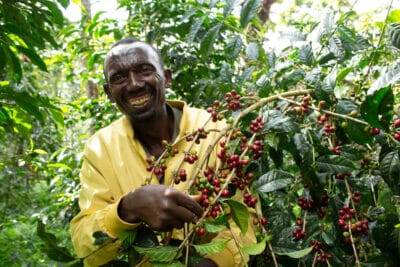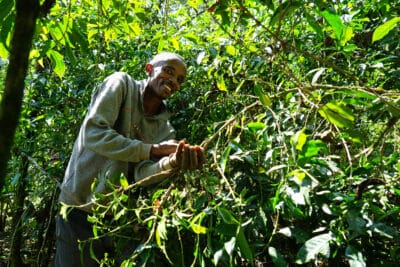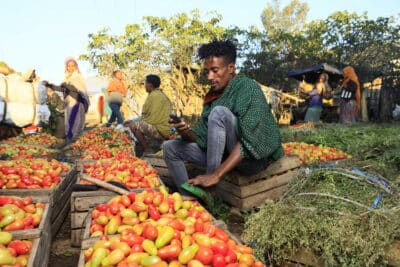Expert view
Ethiopia
17 July 2021
The coffee lady: looking success in the eye
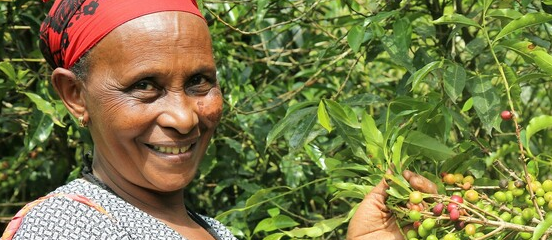
Farming and coffee production has been part of Aberash’s life since childhood. A widow who lost the love of her life 12 years ago, she manages her farm and cattle by herself, in addition to household responsibilities.
Although her children help her in ploughing the farmland, her involvement in activities that are traditionally reserved for men sets her apart.
She is the one who extracts honey from hives. Once her children climb the trees to get the hives, she takes care of the rest of the task by herself.
This is usually considered a male responsibility in Kochi kebele of Illu Aba ora zone, Ethiopia, where 45-year-old Aberash lives, but Aberash doesn’t bother herself with such expectations. She gets involved and transcends traditional gender-assigned roles.
She was the only woman to join Lelisa Kochi participatory forest management cooperative, facilitated by Farm Africa with support from the David and Lucile Packard Foundation.
Although there were no other women members when the 130-strong cooperative was established, Aberash didn’t hesitate to grab the opportunity to join. She became a model for other women too, inspiring a further 20 women to join.
As well as her strength and hard work, she is also an active and influential participant, taking part in every cooperative activity including in labour-intensive roles.
"I am an active participant; I feel responsible for every task in the cooperative including labour demanding ones."
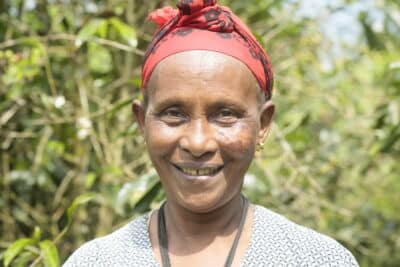
Aberash
Coffee farmer, Ethiopia
“I remember last time when the coffee washing/sorting machine was installed, I was the only woman who was there throughout the whole process,” she says.
“I haven’t faced any significant challenge from male members in the cooperative and the community; I am happy for that.”
The cooperative has supported Aberash to get a better price for her coffee. She has been given training on quality coffee production, which she strongly believes has helped her increase her annual coffee production. As a result, Aberash doesn’t want to miss a moment of training.
Back at home and in the forest, immediately after training, Aberash applies new techniques she has learnt until she sees results.
“I took this training on coffee quality improvement techniques. Immediately afterwards, I started applying what I learnt,” she says.
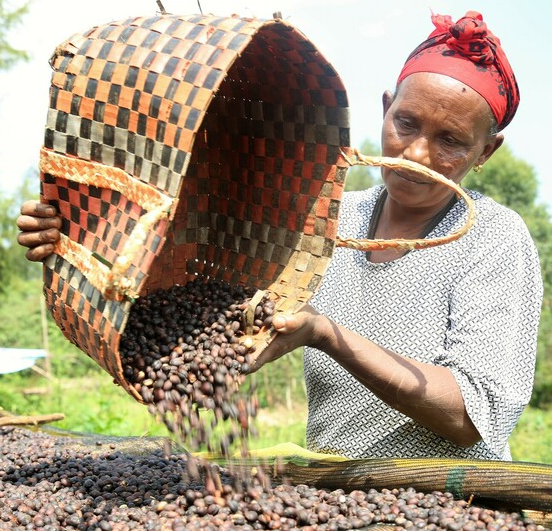
According to Aberash, one of the main benefits of the training she received is a market linkage, which helped her bypass brokers who used to benefit much more than she did.
“Many of us have been delivering our coffee to brokers and traders. We had no choice but to accept the price they offered. Our profit was insignificant and discouraged us from focusing on quality. Whether we produced quality coffee or not, the price didn’t change according to our efforts. Therefore, rather than the quality, the focus was on the quantity of coffee produced,” she stresses.
Farm Africa’s Forest Coffee Value Chain Development project enabled Aberash’s cooperative to build links to the central and international market, and promote the quality of their coffee.
The project provides coffee quality assurance training to all the project participants. Cooperatives supported by the project also receive basic quality enhancing equipment including sacks, mesh wire beds, and bamboo mats.

Aberash appreciates how her productivity improved and the benefits she gained after she joined the cooperative.
“There is a difference of course; I started washing my coffee after the training by Farm Africa. I had never washed my coffee before. I have witnessed my productivity increase by two quintals (200kg) since joining the project, thereby getting a better price for my coffee. Apart from getting a good price, I also receive annually disbursed dividends,” she recounts.
Because of the improvement she saw in her income and quality of life, Aberash now sends her children to high school in Gore Town, 30 kilometres away from where she lives.
